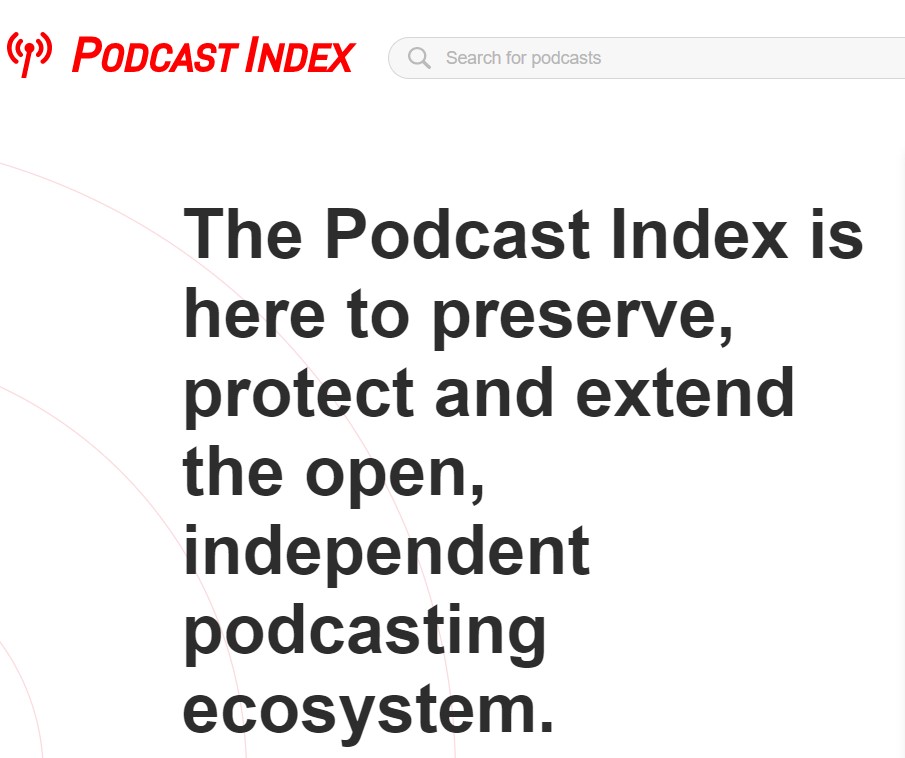The Brookings Institution, partly funded by Apple and Facebook, is coming after podcasting. Why? Because anyone can be a podcaster and there is no major platform that controls content. The author calls out RSS as a problem for it’s open nature and difficulty of cutting the feed. If the feed is removed from one platform it is easily accessible from another. It’s not controllable and therefore needs to be controlled. This article is anti-free speech.
Organizations like the Brookings Institution shows why the Podcasting 2.0 initiative, Podcast Index, and all the independent podcast app developers are important to keeping the free flow of unfettered information. It is a responsibility of all of us to determine for ourselves the media we consume. It should not be left to gatekeepers like Apple, Google, Facebook, Twitter, and the like. The Internet is the public square and no one should be allowed to stop anyone from saying their piece.
Although podcasts have much in common with social media platforms, the relationship between publisher and audience more closely resembles traditional media platforms like radio or television. On Twitter and Facebook many people can publish content, and many people can directly respond to that content, often in real time. In the podcasting ecosystem, the relationship between publisher and audience is far different: Anyone can publish content, but the audience cannot respond directly to it, reducing the ability of the crowd to fact check misinformation like they might on Twitter. This means that as with social media, the gatekeepers determining who gets to share content are all but eliminated in the podcasting ecosystem, but unlike social media platforms, there is no immediate potential for public debate.
Additionally, the nature of the medium makes it far more difficult to monitor potentially misleading content. Much of the recent research to quantify the effects of misinformation utilizes a URL-based strategy to identify low-quality domains posted on social media platforms. The audio-based nature of the podcasting medium represents a hurdle to this approach. Spoken word content can be analyzed using natural language processing techniques, but it is often prohibitively expensive to transcribe hours upon hours of content. Once a set of podcast episodes are in an analyzable form, finding misinformation within that corpus is akin to searching for a needle in a haystack. False information can be buried within huge amounts of transcript text and easily missed. This makes podcasting an ideal tool to inject false or misleading information into mainstream discourse while going undetected.
The challenge of detecting misinformation in podcasting (brookings.edu)
